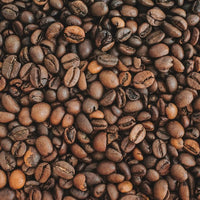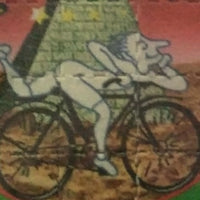Academics have a saying that goes, “It’s not research, it’s me-search.” So perhaps the most telling sign that someone is consuming too much caffeine is when they’ve taken the initiative to open their laptop and Google it.
This isn’t you, obviously. You’re just popping around the internet exploring an article like this because you love to learn. But for those poor, jittery fiends who do have a problem with caffeine, here are some sure-fire tells.
Sleep Sucks
Coffee can have a quarter-life of 12 hours. That means that if you drink a cup at noon, one-quarter of that caffeine could still be circulating in your system at midnight. That’s the equivalent of placing a cup of coffee on your nightstand and downing a few sips moments before you attempt to sleep.
While you might still be able to get a fluttery few hours of something that loosely resembles sleep, caffeine has a uniquely destructive effect on deep sleep. Commonly mistaken for REM sleep, deep sleep is its own unique stage. During this time, your core body temperature drops to its lowest point, eye movement subsides and brain waves slow. This allows for the following processes to take place:
- The pituitary gland secretes human growth hormone, promoting muscle growth and recovery.
- Low-frequency brain waves synchronize many thousands of neurons, allowing your brain to distill and consolidate memories. The mental desktop is cleared.
- The immune system gets a critical boost, particularly in natural killer cells responsible for combatting dangerous cancers.
The speed at which your liver metabolizes caffeine, and therefore your ability to access deep sleep after drinking coffee, all depends on an enzyme known as CYP1A2. This enzyme is ubiquitous among humans, but some have a faster-acting version than others. These people may be able to down excessive amounts of caffeine and still access deep sleep. But for the vast majority of us, coffee late in the day is like that friend who promised they were only stopping by for lunch, but is still lingering on the couch well after dark.
In Michael Pollan’s new book, This is Your Mind on Plants, he writes, “Here’s what’s uniquely insidious about caffeine: The drug is not only a leading cause of our sleep deprivation; it is also the principal tool we rely on to remedy the problem.”
High Anxiety
While a microdose of caffeine can contribute to a range of health benefits, including better digestion and cognitive function, drinking to excess can spike blood pressure and stress. Caffeine is a stimulant, and stimulants can ramp up baseline anxieties through a spike in cortisol. If you’re prone to anxiety, caffeine may be gasoline on the fire.
Caffeine is the only psychoactive drug that we routinely give to children. Since 1977, there has been a 70 percent increase in caffeine use among children. Coupled with stress inducers like social media, many young people are entering the world with higher rates of anxiety than ever. A recent study suggested that approximately 4.4 million children in the United States have diagnosed anxiety. And caffeine can add up quickly. A regular cup of coffee contains anywhere from between 50-400 mg. Throw an energy drink, black tea and chocolate candy bars into the mix, and a person can reach excessively high levels in a hurry.
Caffeine Use Disorder (Yup, It’s a Thing)
Thanks to Roland Griffiths, a leading researcher in the world of mind-altering substances, the diagnosis of caffeine use disorder is now included in the DSM-5, the definitive resource for psychiatric diagnosis. In his research, Griffiths highlighted the following symptoms of caffeine use disorder:
- Withdrawal symptoms: If you miss your morning cup and quickly get a pounding headache, you may want to listen to the alarm your body is sounding. People with caffeine use disorder will experience withdrawal symptoms such as irritability and fatigue when curbing or quitting coffee.
- Tolerance: 90 percent of people on Earth consume caffeine on a daily basis, making it the world’s most-used psychoactive drug. While caffeine isn’t as categorically destructive as, say, alcohol or cigarettes, to be caffeinated is to inhabit “normal” consciousness for many people. As tolerance to caffeine builds, many of its users are forced to ratchet up their dose, thus slipping across the delicate line between benefit and blight.
- Continuing to use despite problems: As Griffiths said in an interview with Michael Pollan, “There’s nothing inherently wrong with an addiction if you have a secure supply, no known health risks and you’re not offended by the idea.” But if you notice yourself becoming anxious and irritable, or sleeping horribly, but still continue to down large amounts of caffeine just to make it through the day, it might be time to take a step back and find out who you are without caffeine.
MUD RECOMMENDS: To learn more about caffeine overconsumption and how it impacts sleep, we recommend checking out Why We Sleep by Matthew Walker. The Caffeine section of Michael Pollan’s This is Your Mind on Plants (available as a stand-alone audiobook) is also great.
Read more: 3 Tips to Help You Quit Coffee
Read more: Pollan and Coffee, Sitting in a Tree
Read more: How I Quit Coffee




